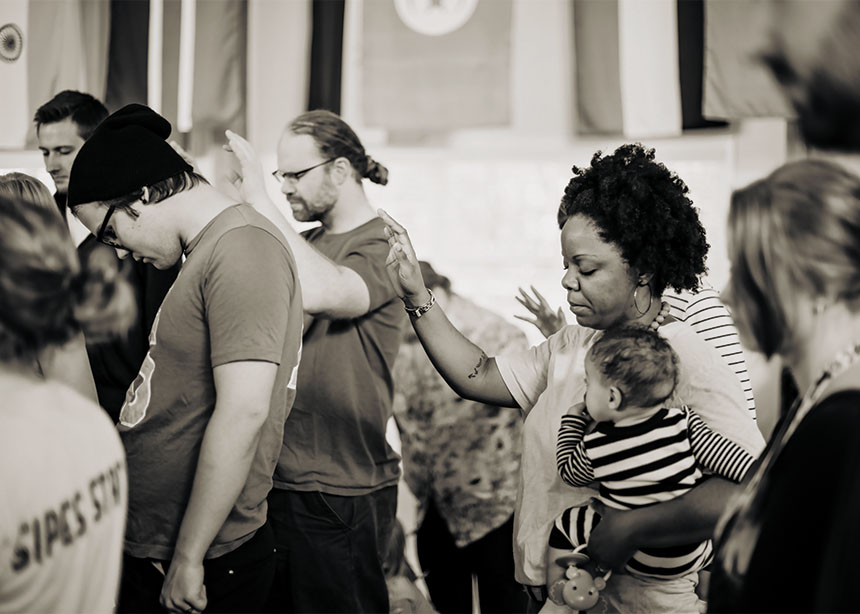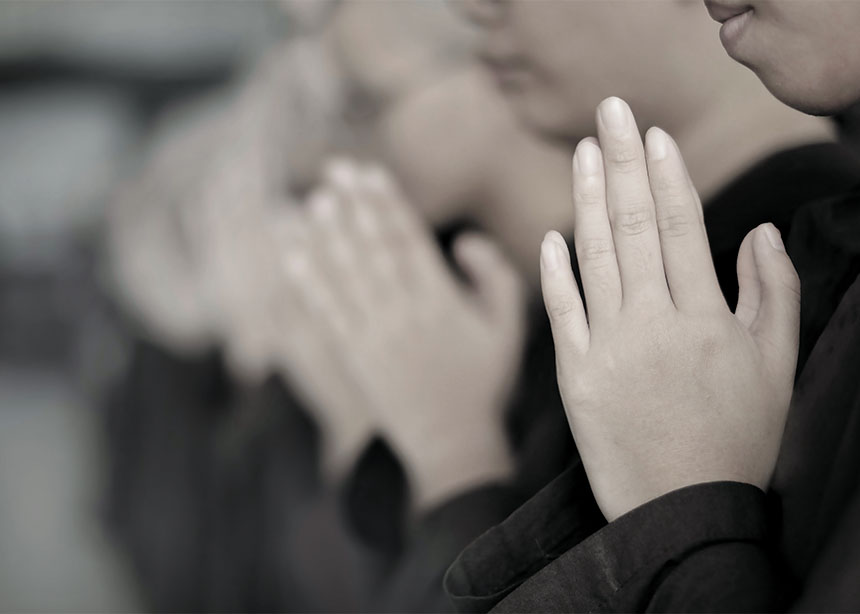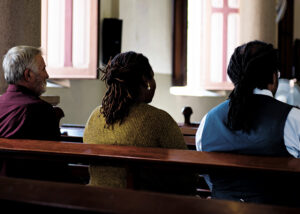When you consider Jesus’ three-year ministry, which specific events come to mind? Which of his actions inspire you the most?
When I was in seminary, one assignment was to pick one of the gospels and to identify every encounter Jesus had in that gospel. We were asked:
- What was the person’s presenting problem?
- What would good news look like to that particular person?
- How did Jesus respond to the person?
- What word might best describe who Jesus is to that person?
I chose the Gospel of Matthew and found 19 incidents in which Jesus encountered people and their problems. As I thought about how Jesus responded to each person and what word might best describe who Jesus was to them, the dominant theme seemed to be Jesus as a healer. In those encounters, 13 cases were related to his healing and saving ministry; four cases had to do with exorcism; and only three cases related to his teaching.
Healing, by definition, goes beyond physical recovery. According to the Center for Christian Ethics of Baylor University “Jesus as Healer” study guide, “Healing involves restoring meaning to life, whether the person’s physical condition improves or remains the same. . . . For instance, the fever that afflicted Peter’s mother-in-law impeded the fulfilment of her domestic role. When the fever left her, she rose and served the visitors (Luke 4:38-39). Jesus the healer restored health and meaning to the life of Peter’s mother-in-law.”
In the story of the healing of the paralytic man, in Mark 2:1-12, the forgiveness of sins is a part of Jesus’ holistic healing ministry. After seeing the faith of the paralytic’s friends, Jesus did not immediately command the infirm person to stand up and go on his way, as he did in some other incidents.
Rather, Jesus preemptively proclaimed that the sick man’s sins were forgiven. These words seemed irrelevant to his physical sickness and therefore gave people an excuse to persecute Jesus later. Jesus, son of Mary, appeared to steal God’s authority by forgiving a person’s sins in public. Blasphemy! Nevertheless, we see in this incident that, because of Jesus’ God-given authority to forgive sins and cure sickness, the whole human being was healed, and sanctified.
Yes, Jesus is the healer and he wants people to be whole and holy, both physically and spiritually. So we can ask for his healing, and he heals us. Is that it?
Toward a collective faith
As you meditate on this story, what strikes you most? Which word or phrase holds your attention? What amazes me are the words, “Jesus saw their faith.”
These words take me back to a time when my wife Shim was carried into an operating room for a serious, life-changing surgery. I sat at a nearby coffee shop, anxiously waiting for what was supposed to be a seven-hour surgery.
I was about to start my meditation on this passage in Mark when a text message from an anonymous caller came in. It read, “All things work together for good to those who love God, so don’t worry!”
I almost burst out crying with thankfulness. A community of people was surrounding us in prayer!
Soon a call came from Shim’s surgeon. He said, “I do not think she needs this surgery today. I think her tumor is gone. Come and take her.”
I couldn’t believe it! I was thrilled to see the connection between this healing story in Mark 2 with the power of collective, united prayer of our community, bringing good to Shim, as it says in Romans 8:28. Later, I tried to identify who had sent that text message, but I still do not know who the sender was.
What I knew then was the power of Jesus in saving my wife’s life, a power that came from the faith of my friends, not my faith. At that time, I had no energy to pray; I was totally exhausted and disoriented. The power that sustained me day to day came from friends—from their prayers and their faith.
This story of the paralytic man’s healing is not about individual faith. It’s about “their faith.” Through the collective and communal faith of the paralyzed man’s friends, he was forgiven and healed by Jesus.
What is collective, communal faith? It is when members of a community, united in prayer and action, call for God’s favour to heal and save the community. Salvation doesn’t stay in the realm of individual well-being or satisfaction but extends to the wider community. In collective faith, our ego and selfishness are dissolved by God’s grace, and a new perspective on others is born, also by God’s grace. We now come to live for others, concerned for the well-being, flourishing and salvation of others. Through this transformed, collective faith, we become Jesus’ partners to heal and save the world.
Understanding Jesus’ healing ministry
When we look at Jesus’ healing ministry and the power of faith, there are some things we need to pay attention to:
First, Jesus didn’t heal only individuals. He also healed groups of people, in response to their collective and communal faith. When he met two blind men crying for help, he stopped and healed their sight, saying, “According to your faith be it done to you.” There is the story of 10 lepers who lived between Samaria and Galilee. When they asked for Jesus’ grace upon them, Jesus stopped and said to them, “Go, show yourselves to the priests.” They were all healed.
Second, Jesus’ healing ministry is not always contingent on the faith of an individual or a group of people. Sometimes he confers grace and mercy indiscriminately. We can see many examples when Jesus healed people without explicitly acknowledging their faith. If we put too much attention on individual or group faith, we overestimate the power of human faith, stymieing Jesus’ authority. Through our faith, we can appeal to Jesus and ask for his healing mercy, but what ultimately heals and saves us is the power of Christ.
Let’s come back to the story and refocus on the words “their faith.” In the story, the friends collectively achieved their goal to bring the sick man to Jesus. They took the risk of climbing the wall, lifting the paralytic man up, stripping off the rooftop and lowering him down to Jesus’ feet. Whew! How easy it would have been for them to become discouraged and give up when they realized that the crowd inside was impenetrable. It would have been easy for them to just wait outside the house. Or they could have employed some strong men to yell at the crowds and blaze a shortcut to Jesus.
Instead, they took the ingenious and painstaking step of lugging the paralytic man up to the roof over Jesus’ head. In their sincerity of faith, this group of friends believed in Christ’s power to heal, to make whole, and to make right what was wrong. And this collective belief led to collective action. Then the soul of the paralytic man opened up and was ready to receive Jesus’ forgiveness and healing, without defences. The scene was perfectly set for Christ’s grace to be endowed upon them. All cast members on the stage were of one mind, open and humble. Their faith prevailed and Christ’s salvation drew near.
Collective faith in a pandemic time
We’re living in a time when physical distancing has become the norm, and sometimes even God seems to practise social distancing. Many people feel alienated and lonely, living in a time when privacy, individualism and selfie culture seem to be present even in the church. In a time when we may even question the power of Christ to heal those suffering from the novel coronavirus, we need to recall the witness of this paralytic man and his friends, and we need to refocus on their collective faith.
We need to ask ourselves how desperately and persistently we have strived to be a community of faith, taking care of each other regardless of our external or physical situation. Have we put effort into connecting with those who are sick, locked down and dying, appealing to God with our communal, tenacious faith? Can we move from an individual faith to a life in which all are fed, recovered, healed and saved?
Our Christianity depends on a communal, collective faith, one that requires us to be actively involved with others, living as each other’s friends and servants. Our worship, our communion, our fellowship and all our church activities are communal. I believe our salvation is not an exception. If we as individuals seek salvation and believe that our relationship with God is important, we must have genuine and equal concern for the other person’s salvation. To be forgiven, we must forgive others. To be loved by God, we must love others. “Do unto others as you would have them do unto you.”
Collective focus. Collective faith. Collective healing. Collective power. Collective salvation! That’s what the church here and now, and forever, longs for!
Joon Park is an intercultural educator and author. He attends Emmanuel Mennonite Church in Abbotsford, B.C.
For discussion
1. As you think about Jesus’ ministry, what are some encounters or events that come to mind most vividly? In his travels, Jesus met and physically healed many people. What questions do you have about these encounters? Why do you think the gospel writers included these stories?
2. Mark 2:1-12 tells the story of Jesus healing the paralyzed man whose friends lowered him from the roof. What is surprising about Jesus’ first words to the man, “Son, your sins are forgiven”? Why were the teachers of the law so upset by this statement?
3. Joon Park describes how the collective and communal faith of his friends sustained him when his wife was facing serious surgery. Have you, or someone you know, ever had a similar experience? How are the prayers and faith of a community different from those of an individual?
4. Park writes, “Our Christianity depends on a communal, collective faith, one that requires us to be actively involved with others, living as each other’s friends and servants.” Why is this so important? What are some examples of ways that we care for each other? How can we work to strengthen our faith communities during the pandemic?
—By Barb Draper









Leave a Reply
You must be logged in to post a comment.